|
The coronavirus has devastated Canada's long-term care facilities. The vast majority of our COVID-19 victims have either been residents of long-term care facilities or employees — despite the many alarm bells raised for years about the living and working conditions in these centres, many of them privately owned.
Today in The Conversation Canada, Bruce Campbell, Mark Winfield and Pat Armstrong of York University issue an impassioned call for formal, independent inquiries into why long-term care facilities have been so ravaged by the coronavirus. They write: "It is critically important that we have as complete an understanding as possible of what went wrong this time and what can be done better next time — because there will almost certainly be a next time."
Also today:
Regards,
|
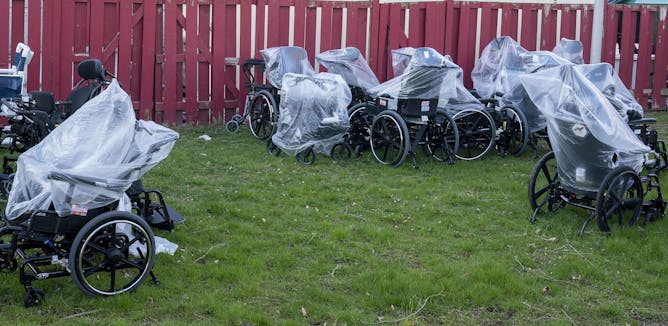
Wheelchairs sit behind Camilla Care in Mississauga, Ont., on May 12, 2020. Fifty residents from the long-term care home have died from COVID-19.
THE CANADIAN PRESS/Frank Gunn
Bruce Campbell, York University, Canada; Mark Winfield, York University, Canada; Pat Armstrong, York University, Canada
The extraordinary scope and scale of the COVID-19 disaster at Canada's long-term care centres would seem to warrant a public inquiry. But there are no guarantees there will actually be one.
|
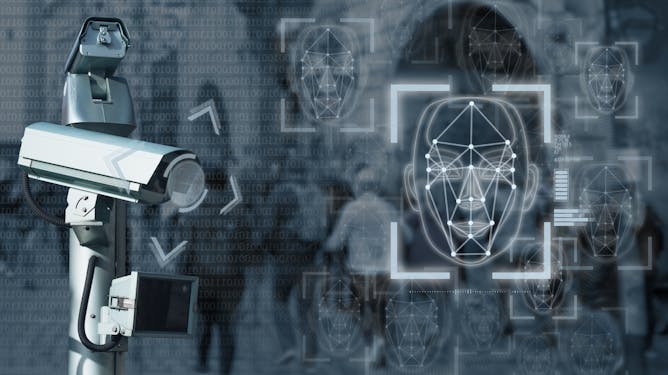
Governments are implementing surveillance technologies to monitor and control the spread of COVID-19.
(Shutterstock)
David Lyon, Queen's University, Ontario
Privacy regulation can’t keep pace with the supersystems collecting, analyzing and using personal data.
|

Universities face pressure to ensure their graduate programs have a clear return on investment both for students and for taxpayers. Here, the Vancouver skyline behind a Canadian flag in North Vancouver, B.C., March 24, 2020.
THE CANADIAN PRESS/Jonathan Hayward
Loleen Berdahl, University of Saskatchewan; Jonathan Malloy, Carleton University; Lisa Young, University of Calgary
Graduate students are suffering, public investments in research are at risk and we need to face implications of growing reliance on international graduate when borders are harder to cross.
|
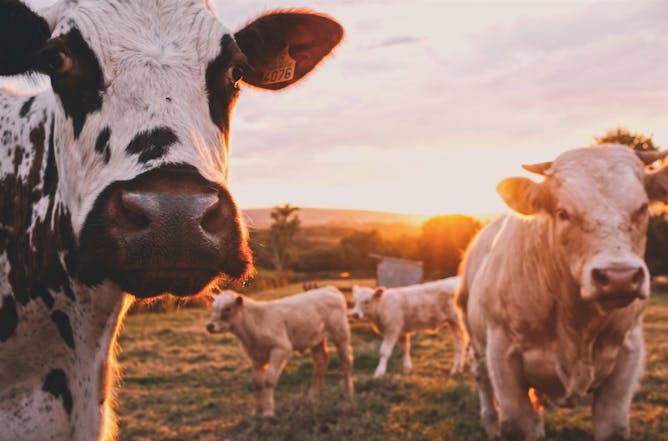
Industrial animal agriculture in our own backyard could very well be the cause of the next pandemic.
(Unsplash)
Kendra Coulter, Brock University
Animal suffering not only harms other species, it endangers our own. Here's how we can do better.
|

The Netflix documentary ‘The Last Dance’ reveals the hyper-competitiveness of Michael Jordan during the 1990s.
AP Photo/Stephan Savoia)
Ajit Pyati, Western University
The hyper-competitiveness of Michael Jordan may work on the basketball court, but the win-at-all-cost American culture that Jordan represents is not what's needed to end the coronavirus pandemic.
|
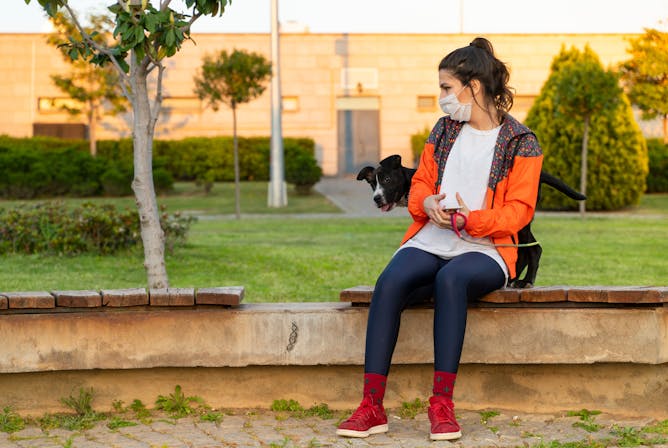
Research consistently shows the benefits of pet ownership during stressful times.
(Shutterstock)
L.F. Carver, Queen's University, Ontario
Pets can relieve anxiety during the pandemic and reduce the effects of social isolation. However, there have been waves of pet adoptions and abandonment related to the pandemic.
|
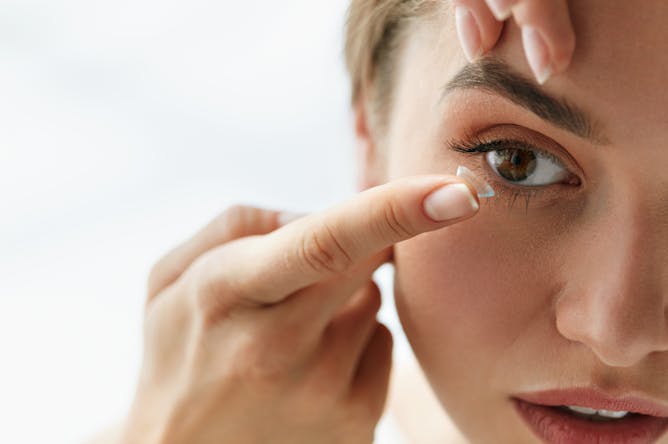
Bien que la présence du virus SARS-CoV-2 ait été observée dans les larmes de certains patients malades, il est peu probable que cette voie de transmission favorise le développement de la Covid-19 ou d’une infection localisée à l’œil.
shutterstock
Langis Michaud, Université de Montréal
Les lentilles cornéennes sont sécuritaires, à condition de suivre rigoureusement les recommandations d’hygiène, dont le lavage fréquent des mains.
|
Arts
|
-
Joan Taylor, King's College London
What do you do when you find something amazing you didn't expect, and there is no budget in your grant to investigate it?
|
|
Health
|
-
Kacey Ernst, University of Arizona; Paloma Beamer, University of Arizona
Fear of flying means something altogether different in the age of the new coronavirus. Now the biggest concern is how to keep from becoming infected. If you must fly, here are some things to consider.
|
|
Politics
|
-
Sheriff Folarin, Covenant University
Nigeria's pre-eminent position in Africa, lost to corruption and political patronage over the years, can be regained by putting its house in order.
|
|